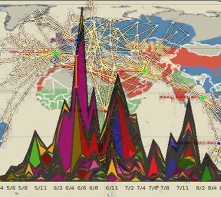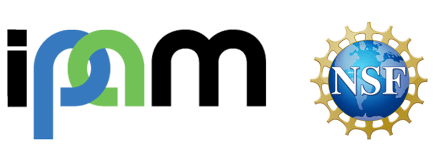White Papers: Culture Analytics
The data driven analysis of culture is now a reality, and calls for substantial investment in the emerging field of Culture Analytics. Culture Analytics simultaneously studies the dynamics of culturally informed interactions between people, and the cultural expressive forms that result from these interactions, and it does so at scales hitherto unimaginable. Researchers from the Humanities, the Social Sciences, the Mathematical Sciences, and the Data Sciences are now collaborating to identify, document, and integrate concepts, methods and tools that will provide an intellectually and ethically sound approach to the study of cultures across time and across space, leveraging the enormous gains made in the past decade in computation and machine readable cultural archives, from libraries and museum collections to the born digital cultural expressions of billions of people on the internet. This rapid proliferation of digital data has made the role of Culture Analytics all the more central particularly given the potential for significant benefit that lies in harnessing the domain expertise of researchers across these disciplines. The fundamental need for a collaborative approach that traverses disciplines which traditionally have little interaction will ensure that Culture Analytics matures rapidly, and that data-driven studies of culture will be both responsible and meaningful.
an intellectually and ethically sound approach to the study of cultures across time and across space, leveraging the enormous gains made in the past decade in computation and machine readable cultural archives, from libraries and museum collections to the born digital cultural expressions of billions of people on the internet. This rapid proliferation of digital data has made the role of Culture Analytics all the more central particularly given the potential for significant benefit that lies in harnessing the domain expertise of researchers across these disciplines. The fundamental need for a collaborative approach that traverses disciplines which traditionally have little interaction will ensure that Culture Analytics matures rapidly, and that data-driven studies of culture will be both responsible and meaningful.
As a first step toward articulating the goals and challenges of Culture Analytics, IPAM sponsored a long program during the spring of 2016. The program, organized into a weeklong tutorial, four weeklong workshops, and a concluding workshop at Lake Arrowhead, brought together over 150 scholars as participants and speakers to address these complex issues. The goal of the long program was to offer an inflection point in the development of the field, recognizing the acceleration of work on cultural problems across many disciplines that take advantage of the explosion in machine-actionable cultural data, from historical archives of texts to rich 3D representations of archeological sites, from Twitter commentary on current events to huge collections of user interaction data on dating sites. By coming together and learning across disciplines, we can move toward a collaborative, translational data science for Culture Analytics that converges on a shared understanding of the challenges associated the data driven analysis of cultural phenomena.
The participants in the IPAM long program identified “Grand Challenge areas” for Culture Analytics. It is in these areas that we believe the greatest gains can be made, particularly by groups working with the processes and approaches that we discuss in six Culture Analytics white papers.





